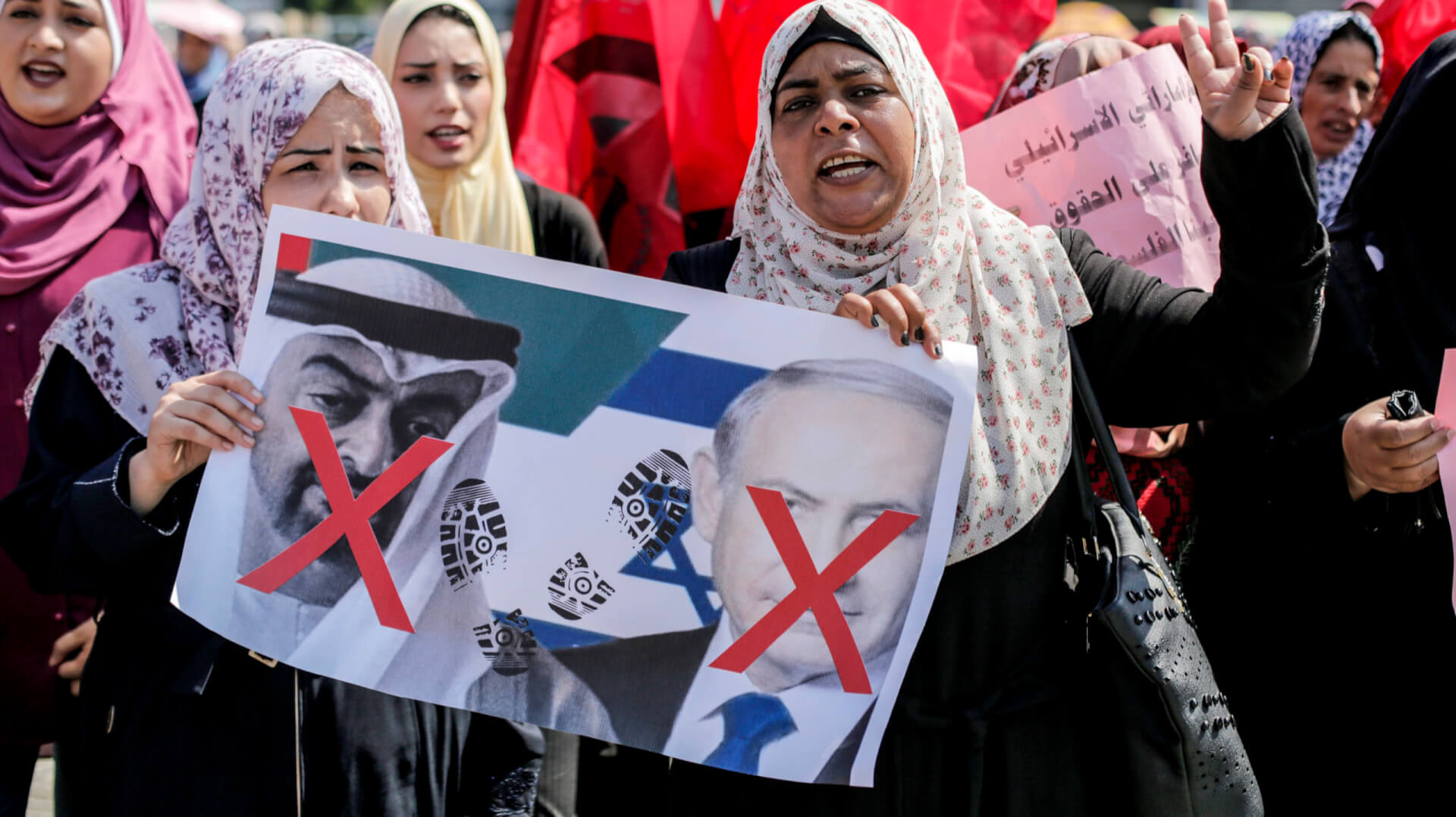The Arab League failed to pass a resolution yesterday to condemn the normalisation of ties between the United Arab Emirates (UAE) and Israel. The League’s Assistant Secretary-General, Hossam Zaki, said, “Discussions regarding this point were serious. It was comprehensive and took some time. But it did not lead in the end to an agreement about the draft resolution that was proposed by the Palestinian side.”
Following a three hour discussion on the matter, Palestinian Ambassador Muhannad Aklouk said, “Both Palestine and the Arab countries agreed not to include a clear condemnation of the UAE-Israel deal.” The League blamed Palestine’s tough stance for the unsuccessful attempt to pass the resolution, with Zaki stating that Palestine “insisted they would either accept a condemnation or no statement”. However, preliminary reports claimed that Palestinian diplomats, in order to avoid diplomatic failure, “intended to soften their stance on the UAE going into the meeting”.
The United States (US)-brokered UAE-Israel deal was announced last month and was immediately condemned by Palestine. A key highlight of the plan is that Israel has agreed to suspend its internationally-condemned plans to unilaterally annex parts of occupied West Bank territory. Describing the agreement as “an earthquake,” Palestinian Foreign Minister Riyad al-Maliki “urged Arab nations” to reject the deal. Describing Israel’s occupation as “colonial and racist”, he accused the US of pressuring other Arab countries to normalize ties with Israel. After the deal, the UAE now joins Jordan and Egypt as the only Arab countries to establish normal relations with the Jewish state.
Following the normalisation of relations between Israel and UAE, Saudi Arabia stated, “the Kingdom would not be following its neighbour’s footsteps to establish normal diplomatic ties with the Jewish state any time soon.” Therefore, at the Arab League meeting, Palestinian leaders won renewed Saudi support for their statehood. Commenting on the stalled resolution, Palestine’s Ambassador Muhannad Aklouk said, “In the face of the UAE-Israeli normalisation agreement, it has become necessary for us to issue a position to reject this move. Otherwise, our meeting will be considered as a blessing or being complicit with the normalisation.” Furthermore, Palestinian Liberation Organisation (PLO) chief negotiator Saeb Erekat asked Arab League Secretary-General Ahmed Aboul Gheit to resign if he could not condemn the treaty.
Defending the League’s position, Gheit explained, “it is the indisputable right of each country to have sovereignty in conducting its foreign policy in the way it sees fit. This is something that this council respects and approves. At the same time, we hold certain values as principles of consensus.” The UAE has maintained that the agreement to restore normal relations with Israel is drawn from its “sovereign” right to do so. Moreover, UAE’s Foreign Minister Anwar Gargash emphasised that the decision was “in accordance with the UAE’s strategic interests”. The historic deal between Abu Dhabi and Tel Aviv has been welcomed and supported by Egypt, the United Kingdom, France, Bahrain, and Jordan. Expressing support for the deal, a spokesperson for United Nations Secretary-General Antonio Guterres said that the leader welcomes the agreement and hopes that it will lead to negotiations of a two-state solution for the Palestine issue, as per previous UN resolutions.,
Despite not passing a resolution condemning the UAE-Israel agreement, the Arab League agreed to include an emphasis in the final communiqué on its commitment to the 2002 Arab Peace Initiative, the two-state solution, and the land-for-peace principle. Gheit said, “I reiterate our rejection of any plans or arrangements presented internationally that would undermine the Palestinian right, or prejudice the status of the city of Jerusalem, whose case should be resolved within the framework of the final settlement.” However, Palestine’s Hamas spokesperson Hazem Qassem criticised the League and said that the “inability to condemn the UAE merely tempts Israel and the United States to continue implementing their plan to liquidate the Palestinian cause”.
Arab League Fails to Pass Resolution Condemning UAE-Israel Deal
Although Palestine failed to persuade the Arab League to approve a resolution condemning the UAE-Israel deal, it obtained renewed support from Saudi Arabia.
September 11, 2020

Palestinians protest the normalisation agreement between the UAE and Israel on August 16, 2020 in the northern Gaza Strip. SOURCE: MAHMOUD ISSA/SOPA IMAGES/LIGHTROCKET VIA GETTY IMAGES
